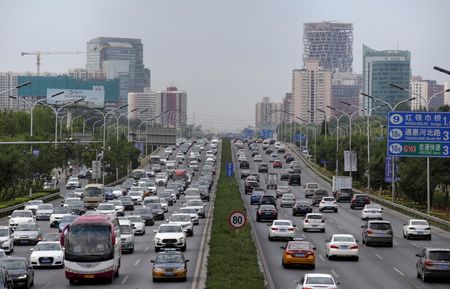 1
1 1
1

BEIJING (Reuters) -Sales of new energy vehicles (NEVs) in China fell 18.6% month-on-month in January after the country cut subsidies for NEVs by 30%, industry data showed on Friday.
Sales of NEVs, which include battery-powered electric vehicles, plug-in petrol-electric hybrids and hydrogen fuel-cell vehicles, in January reached 431,000, representing an annual increase of 135.8%, according to data of the China Association of Automobile Manufacturers (CAAM).
December sales surged as buyers rushed in ahead of a subsidy cut that took place in January, Cui Dongshu, Secretary-General of another industry body China Passenger Car Association (CPCA) said on Monday.
In December 518,000 NEVs were sold in China, increasing 159.5% year on year.
China has ambitious goals in promoting NEVs as part of efforts to curb air pollution and believes the industry has matured enough to be driven by demand rather than subsidies.
Total automotive sales in the world’s biggest car market rose 0.9% in January from a year earlier to 2.53 million vehicles, their first uptick after eight consecutive months of declines, according to CAAM.
In January, demand kept increasing before the lunar new year and the supply of chips continued to improve, CAAM said in a statement. But sales growth slowed thanks to impact of COVID epidemic in some areas, it added.
A global shortage of chips, used in everything from brake sensors to power steering and entertainment systems, has led automakers around the world to cut or suspend production, pushing up prices and hurting sales.
On Monday, data from CPCA showed that U.S. electric vehicle maker Tesla Inc sold 59,845 China-made vehicles in January.
Tesla is the only foreign automaker among the top ten best selling NEV brands in China thanks to fierce competition, as local manufacturers such as Nio, Xpeng Inc and Li Auto Inc cater to Chinese consumers with products more tailor made to local tastes.
(Reporting by Sophie Yu and Brenda Goh; Editing by Clarence Fernandez, Sam Holmes and Shailesh Kuber)